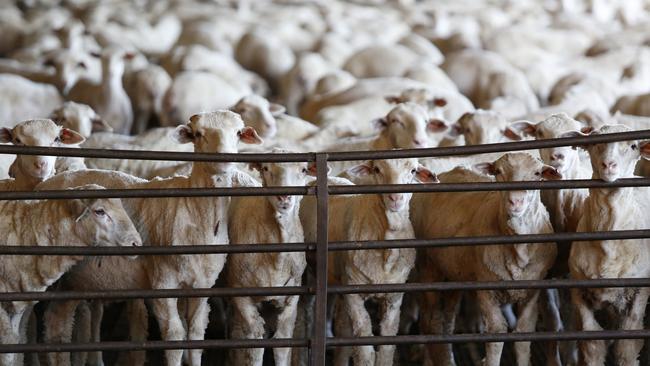Rich Saudi live sheep by sea trade resume in industry’s dying days
The first live sheep to be shipped from Australia to Saudi Arabia in more than a decade will depart within days, despite the industry remaining on the brink of closure.
The first live sheep to be shipped from Australia to Saudi Arabia since 2011 will depart within days, fuelling industry claims of the revitalisation of a trade the Albanese government is preparing to ban.
Saudi Arabia was a jewel in the live sheep export trade before its government closed the $100 million market after refusing to sign up to the then Gillard government’s Exporter Supply Chain Assurance System on the grounds it compromised its sovereignty.
However, after recently agreeing to the measures, an small consignment of 5000 sheep will be shipped to the kingdom, which traditionally prefers the quality of Australian meat and its disease-free status, to test processes.
It comes just weeks after eastern state farming lobbies – including Victorian Farmers Federation, NSW Farmers and Livestock South Australia – wrote to Ag Minister Murray Watt pleading for the trade to be saved, arguing exports could resume from the east coast market.
More than 12 million live Australian sheep were exported to Saudi Arabia between 1989 and 2012.
Australian Livestock Exporters’ Council chief executive Mark Harvey-Sutton said the resumption was a further vote of confidence in the business after almost 640,000 live sheep were exported from Western Australia last year, a 41 per cent year-on-year increase.

“The fact Saudi Arabia are willing to look at Australia again shows that there is demand for live sheep, as opposed to chilled and frozen meat,” he said.
“It is also an acceptance by another country of our animal welfare standards and exposes notions it is a dying industry as false and unjustified. If Saudi Arabia gets a roll-on there will naturally be a big increase in exports.
“One of the great ironies is we have a basically new market opening while at the same time shutting down an industry.”
He said the spike had also left export companies “teetering” on adding vessels.
Labor took the policy of ending live sheep exports to the last two federal elections after the Awassi Express disaster in 2018 when 2400 sheep died on-board in the heat of the Middle East summer.
The trade then declined dramatically from two million head in 2017 mainly due to a subsequent ban on summer trading and the pull on WA sheep during the east coast post-drought restock.

A report by the independent panel formed to advise the government on its phase-out plans is being considered by the government.
Meanwhile, key farm groups recently wrote to Agriculture Minister Murray Watt arguing that the resuming Saudi trade, prevailing market conditions and processors at capacity meant
“a compelling case exists for live sheep exports to resume from the east coast market”.




